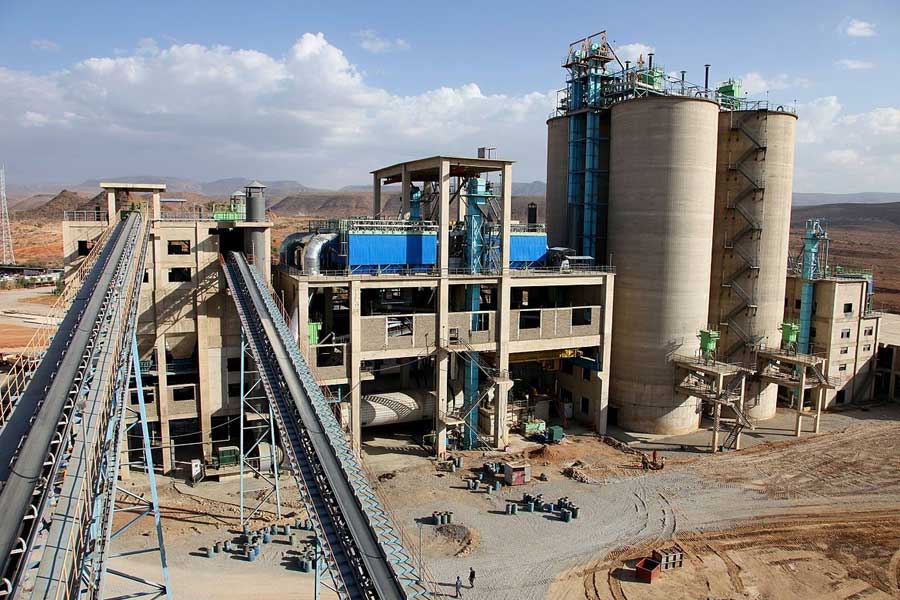
Mar 9 , 2024.
Mamo Mehiretu's tenure at the central bank's helm is marked by a distinct shift in focus towards price stability and inflation targeting, a departure from the traditional roles typically embraced by his predecessors. Yet, despite these efforts, the outcome of such policies has been less than satisfactory.
Inflation, a persistent adversary, continues to challenge the economy with its volatility, largely due to the central bank's monetary policy, which remains closely aligned with the fiscal objectives of Prime Minister Abiy Ahmed's administration. This alignment has led to an excessive injection of money into the economy, mounting the inflationary pressures. Governor Mamo and his team, comprising advisors with liberal economic worldviews, find themselves on a precarious path. Their strategy involves a high-stakes macroeconomic rebalancing act at the potential expense of growth and economic activities, yet with little tangible outcomes to show for their efforts.
In a similar vein, Finance Minister Ahmed Shide presented a report to Parliament that exuded a degree of pride for the administration's introduction of five-year treasury bonds, a measure targeting the expanding budget deficit, which has recently exceeded four percent of the GDP. However, this pride overlooks the mandatory nature of these bonds, an omission that masks the reality of the government's approach to financing its deficit.
Although the budget deficit has indeed worsened, escalating from nearly three percent of the GDP in the 2020-21 period to over four percent last year, the manner of financing this deficit has seen a notable shift from external to domestic borrowing, culminating in domestic lenders covering almost the entirety of the deficit last year.
This transition is illustrated by significant growth in total credit across all sectors.
The public sector's reliance on credit financing has surged, with credit outstanding jumping from 281 billion Br in June 2017 to 657 billion Br by June 2022. State-owned enterprises (SOEs) have also seen a dramatic increase in credit absorption, and the private sector has experienced substantial growth in credit availability - although in nominal terms - through private banks and other institutions. This expansive growth in credit shows a shifting economic environment, where domestic borrowing has become a principal method of deficit financing.
The Treasury Bill market, in particular, has emerged as a major source of public debt financing. As of the fourth quarter of 2023, the outstanding fund in this market was 1.38 trillion Br, with a small portion (650 million Birr) attributed to banks and the majority to non-banks. State-owned enterprises increased borrowing from 237 billion Br in June 2017 to 851 billion Br by June 2022. This funding represents a significant increase from the prior years. However, the net financing this market provides to the government has sharply declined, indicative of the changing dynamics in government borrowing practices.
The effective interest rates for T-bills have been on the rise, reflecting a market preference for shorter-dated securities, a trend that signals higher financing costs for the government across all maturities.
The broad money supply has witnessed annual growth rates of 23pc in recent quarters, driven primarily by the need to finance an enlarged budget deficit. Although dropped significantly from the preceding years, this has led to a situation where net credit to the government represents a substantial portion of the outstanding money supply, marking a noteworthy shift from five years ago. Consequently, banks have become increasingly selective in their lending practices, prioritising sectors such as exports, which contribute valuable foreign currency, while other sectors, like manufacturing and construction, face limits in accessing credit, hence considerable contraction in their growth.
An analysis of the increase in domestic credit to the government and state enterprises serves as a proxy to gauge the scale of deficit financing, revealing a near-tripling of domestic credit in five years from June 2018. The amount of net credit to the federal government during the fourth quarter was 246.9 billion Br, while state enterprises received a little over half a trillion Birr. The surge in domestic credit indicates a growing fiscal gap and should call for attention to the banking system's liquidity troubles.
As domestic credit increases, a larger portion of the banking system's funds are tied up in government securities or loans to state enterprises, potentially reducing the liquidity available for lending to the private sector. The central bank's imposing a 14pc cap on credit growth further complicates the situation, restricting fresh loans and liquidity.
Despite these constraints, the economic landscape is characterised by significant credit growth across all sectors, a substantial budget deficit, and increasing public and external debt levels. The expansion of credit to the private sector, in particular, suggests an economy that, while facing difficulties, continues to demonstrate a degree of growth potential, if allowed to expand. However, the high levels of public and state enterprises borrowing urge the need for careful fiscal management to ensure long-term economic stability.
This should demand the administration abandon the entrenched habit of using the central bank as its bankroller. Central banks should be lenders of last resort.
Understandably, the debate over central banks' autonomy, a topic that has captured the attention of economists since Milton Friedman's seminal essay in 1962, should serve as a highly relevant guide in Ethiopia's economic policy. Friedman's advocacy for a central bank governed by specific legislative rules, rather than the discretionary whims of politicians, demonstrated the importance of insulating monetary policy from political influence.
While central bank policy autonomy has become a foundational principle in economic literature, emerging markets like Ethiopia are reluctant to implement these ideals. The country falls short in several areas, including the long-term appointment of governors, the limits of direct lending to the government, and the autonomous design of monetary policy. After all, the National Bank of Ethiopia (NBE) remains answerable to the Prime Minister, and not the legislative body, a regrettable error of judgment by the framers of the constitution.
In a way, the anticipated entry of foreign banks and the anticipated launch of capital markets should represent a forthcoming chapter in the economic reform agenda. Poised to test the financial sector's adaptability, what will unfold could show the imperative for a recalibrated relationship between state authority and market forces and the autonomous policy role the central bank could have. The management of this transition, balancing financial sector liberalisation with the realities of state intervention, will be crucial in shaping Ethiopia's economic future.
Ethiopia's pathway encapsulates policymakers' dilemma in balancing fiscal strategies, monetary policies, and the overarching goal of economic stability. The balance between stimulating economic growth, managing inflation, and ensuring fiscal sustainability defines the contours of its leaders' economic policy choices. As the central bank and fiscal authorities chart these waters, the outcomes of their policies will continue to wreak havoc on the lives of ordinary people.
If vibrant capital markets that can provide an alternative source of financing are a part of the medicine that the Prosperitans are looking to administer over the next few years, business as usual would not do. Neither the inflation targets nor almost any other monetary target will be realised under economic conditions marked by the government's current market distortionary role.
They could make different choices. In the near future, the National Bank of Ethiopia will need to be redefined by reconstituting it tethered to policy autonomy, ending 'mandatory' bond purchases, and concessions to the 'invisible hand'.
PUBLISHED ON
Mar 09,2024 [ VOL
24 , NO
1245]

Radar | Jun 12,2023

Fortune News | Feb 26,2022

Editorial | Jul 08,2023

Fortune News | Apr 20,2019

Commentaries | Sep 03,2022

In-Picture | Feb 16,2019

Radar | Jun 07,2025

Editorial | Jul 22,2023

Editorial | Sep 16,2023

Editorial | May 13,2023

My Opinion | 131673 Views | Aug 14,2021

My Opinion | 128039 Views | Aug 21,2021

My Opinion | 126001 Views | Sep 10,2021

My Opinion | 123622 Views | Aug 07,2021

Dec 22 , 2024 . By TIZITA SHEWAFERAW
Charged with transforming colossal state-owned enterprises into modern and competitiv...

Aug 18 , 2024 . By AKSAH ITALO
Although predictable Yonas Zerihun's job in the ride-hailing service is not immune to...

Jul 28 , 2024 . By TIZITA SHEWAFERAW
Unhabitual, perhaps too many, Samuel Gebreyohannes, 38, used to occasionally enjoy a couple of beers at breakfast. However, he recently swit...

Jul 13 , 2024 . By AKSAH ITALO
Investors who rely on tractors, trucks, and field vehicles for commuting, transporting commodities, and f...

Jun 29 , 2025
Addis Abeba's first rains have coincided with a sweeping rise in private school tuition, prompting the city's education...

Jun 29 , 2025 . By BEZAWIT HULUAGER
Central Bank Governor Mamo Mihretu claimed a bold reconfiguration of monetary policy...

Jun 29 , 2025 . By BEZAWIT HULUAGER
The federal government is betting on a sweeping overhaul of the driver licensing regi...

Jun 29 , 2025 . By NAHOM AYELE
Gadaa Bank has listed 1.2 million shares on the Ethiopian Securities Exchange (ESX),...